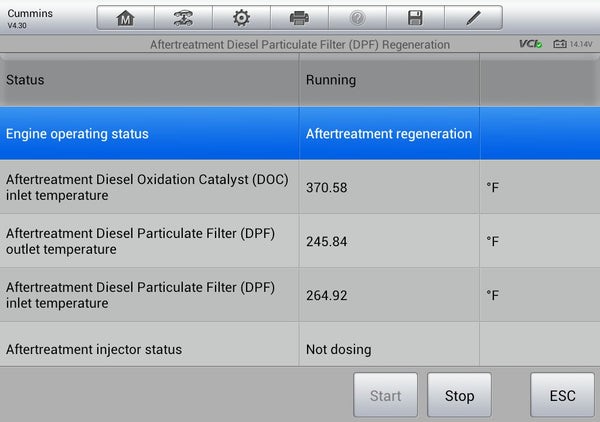Autel, a well-known automotive diagnostic tool manufacturer, recently launched the MaxiSys CV (Commercial Vehicle), a diagnostic kit designed for heavy-duty trucks. Priced at $3299, the MS908CV kit includes a rugged 7″ Android tablet, a hard case, and necessary cables. But how does it compare to established players like Texa? This review pits Autel against Texa, examining functionality, coverage, and overall value.
Hardware and Initial Setup
The Autel MaxiSys CV boasts a robust hard case with organized compartments for easy tool access. The kit includes the 7″ tablet, a J2534 ECU adapter, various cables (OBDII, 9-Pin, 6-Pin), and a universal cable kit. The tablet features a bright, albeit glare-prone, screen and an 11000 mAh battery providing approximately 8 hours of continuous use. Pre-installed applications include web browsing, TeamViewer, and Adobe Reader.
However, initial setup can be lengthy, requiring registration on a separate computer and numerous downloads and updates. This process can take several hours and involves repeated download-install-reboot cycles.
Functionality and Coverage: Autel vs. Texa
Functionality was evaluated by comparing the Autel MaxiSys CV to the Texa Truck system, considered a benchmark for comprehensive multi-brand coverage. Testing involved connecting to various truck models to assess diagnostic capabilities.
The Autel MaxiSys CV includes a broad range of European, Asian, and North American trucks in its menu. However, many listed vehicles are not available in the US market. The interface, borrowed from Autel’s automotive software, features car icons instead of truck-specific imagery.
Testing revealed inconsistencies in vehicle identification and system coverage. On a 2017 Peterbilt with a PACCAR MX engine, the Autel MaxiSys CV misidentified the model year and engine type. Scan times were slow (2.5 minutes), and the tool failed to detect crucial subsystems like ABS and the body controller. While live data was well-presented, bi-directional commands were limited, and essential functions like the EGR de-rate disable command were missing. In contrast, the Texa Truck system scanned the same vehicle in 1 minute, accurately identified all systems, and offered a broader range of commands.
Similar issues arose with other models. On a 2016 Freightliner with a Detroit engine, the Autel MaxiSys CV displayed incorrect hexadecimal codes instead of the standard SPN & FMI codes. Troubleshooting information was lacking, and some codes were misspelled. While bi-directional commands were available for the Detroit engine, the interface was confusing and lacked clear descriptions. Texa, on the other hand, provided comprehensive bi-directional command functionality for both powertrain and cab controllers.
Performance on a 2002 Bluebird school bus with a Cummins ISB engine was more positive. The Autel MaxiSys CV quickly scanned the bus, provided both OEM and generic codes, and included built-in repair information. However, bi-directional commands were limited compared to the extensive options available with Texa. A significant recurring issue was the inability to change engine parameters, a feature readily available in the Texa system. Testing on a 2013 International TerraStar with a MaxxForce 7 engine revealed a confusing menu system and inaccurate command descriptions.
Strengths and Weaknesses: Autel MaxiSys CV
Pros:
- Durable hardware and well-designed carry case.
- Excellent Allison Transmission coverage.
- Built-in repair information for Cummins engines.
- Inclusion of common bi-directional commands.
- Potentially good coverage for imported trucks.
Cons:
- Inaccurate Detroit code reading.
- Long scan times.
- Inconsistent ECU detection (ABS, body controller, chassis controller).
- Occasional misidentification of model year and engine type.
- Limited troubleshooting information.
- Restricted ability to change engine parameters.
- Fewer bi-directional commands compared to Texa.
Conclusion
While the Autel MaxiSys CV offers promising hardware and some areas of strong coverage (Allison transmissions, Cummins engines), its overall performance falls short of the Texa Truck system. Inconsistencies in vehicle identification, limited bi-directional commands, slow scan times, and a lack of crucial features like parameter adjustment hinder its functionality. Autel shows potential in the commercial truck diagnostic market, particularly if they leverage their automotive expertise to create a combined car and truck tool. However, in its current state, the MaxiSys CV is best suited for users with basic diagnostic needs who prioritize hardware durability over comprehensive functionality. For technicians requiring in-depth diagnostics and extensive bi-directional control, the Texa Truck system remains a superior choice.

